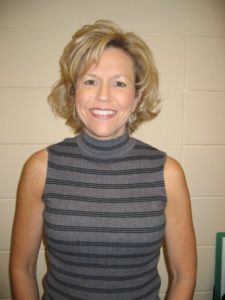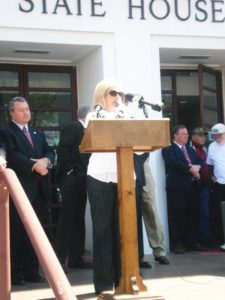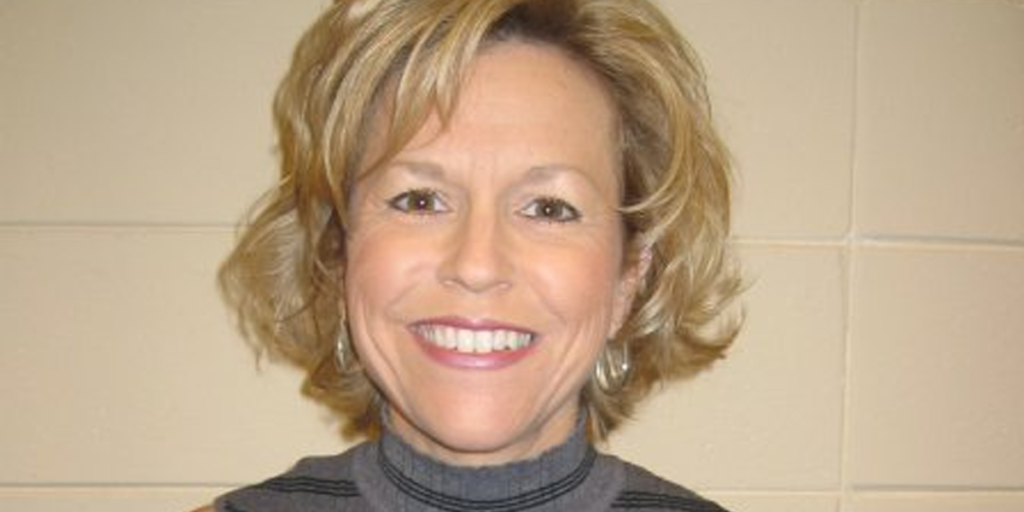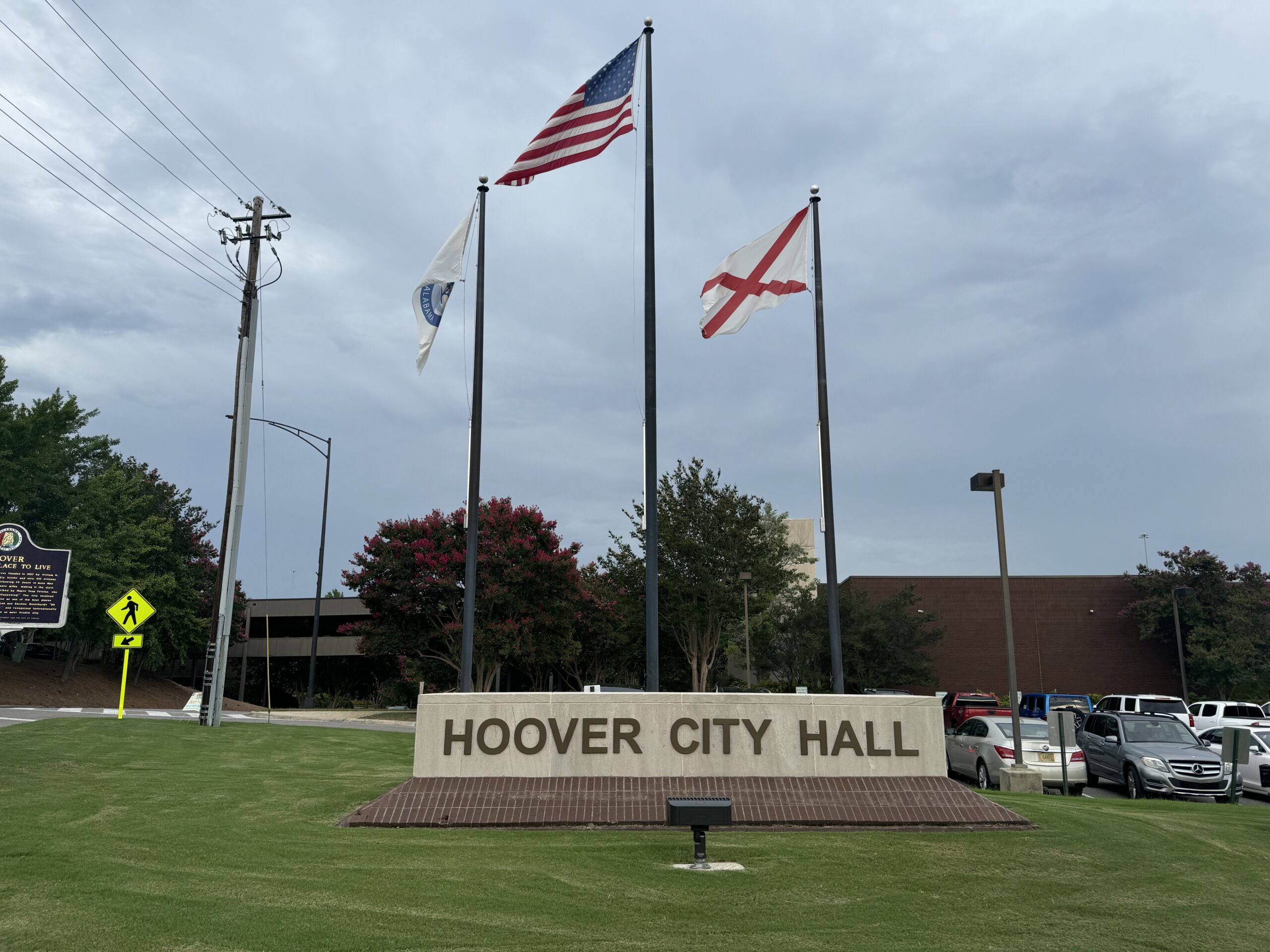Dr. Caroline Gomez is an Autism Spectrum Disorder (ASD) sage; working within the ASD community for over three decades, Gomez is determined to advise, guide, and work directly with those who would help and serve individuals with ASD.
 A Miami-native, Gomez spent most of her college and working career in the Yellowhammer state. Receiving her first degree, a bachelors in Special Education, from Troy University in 1983, she worked as a special education teacher at several schools within in the state until 1987.
A Miami-native, Gomez spent most of her college and working career in the Yellowhammer state. Receiving her first degree, a bachelors in Special Education, from Troy University in 1983, she worked as a special education teacher at several schools within in the state until 1987.
She then moved back to Florida for a brief stint as an elementary school teacher and team leader, before moving to Texas to begin working on her Master’s degree in Special Education, (including an Autism specialization) at Our Lady of the Lake University in San Antonio, Texas.
Earning her Master’s degree in 1995, Gomez moved across the pacific to Tachikawa, Japan where she worked as an English instructor for the Yokogawa Engineering Corporation while also working as an Autism Inclusion Consultant at the Yakota Elementary school on the Yakota Air Base. Continuing her education even further, Gomez moved back to the state of Alabama to earn her Ph.D. in Rehabilitation & Special Education, with a specialization in Autism, from Auburn University.
While working on her Ph.D., Gomez continued to work with several different schools, and a mental health center until she started her own private practice in 2001, Autism Diagnostics, Consultation, and Training which she still maintains today.
But she didn’t stop there, we’re only in the early 2000’s, and she only gets more impressive from here on in…
In 2003 she earned her Ph.D, and became the co-director of the Auburn University Autism Center, overseeing and delivering several programs and services including:
- a model demonstration site for best practice education for children with ASD
- training for families, teachers, and related professionals
- outreach consultation services
- research opportunities relative to effective intervention strategies for children with ASD
In 2007, Gomez took a position as Director of the Autism Hope Center in Georgia until 2009, when she relocated back to the Yellowhammer state.
 That year, Gomez was named the first ever Autism State Coordinator for the state. There, she led the Alabama Interagency Autism Coordinating Council and worked with then-Gov. Bob Riley to meet recommendations set forth by the Alabama Autism Task force.
That year, Gomez was named the first ever Autism State Coordinator for the state. There, she led the Alabama Interagency Autism Coordinating Council and worked with then-Gov. Bob Riley to meet recommendations set forth by the Alabama Autism Task force.
She continued to work as the state coordinator for two years, before jumping back into the private sector in 2011 to work as an autism diagnostic and consultation specialist at Glenwood Mental Health, Inc. in Birmingham, where she provided and planned program recommendations to Alabama school systems, a position she has held to this day. Gomez was also awarded the Resolution Honoring Professional Achievement by the Alabama State Senate, the same year.
In 2012, Gomez added Adjunct Professor at the University of Alabama in Birmingham to her already impressive resume, and became a full-on Professor, teaching online courses, at the American Public University System in 2013, a position which she still maintains to this day.
During all of her long work history, Gomez has somehow managed to serve on several boards including the:
- National Network of Autism Training and Technical Assistance Programs (NATTAP) (2009-2015)
- Alabama Disabilities Leadership Coalition (2010- current)
- Lee County Autism Resource and Advocacy (2014- current)
- Alabama Annual Autism Conference Planning Committee (2007-current)
- Autism Society of Alabama (2004-2009; 2012- current)
This year Gomez was selected to serve as Vice-President for the Autism Society of Alabama, a title she also held in 2009.
She is a truly remarkable woman, who has spent a majority of her lifetime leading and encouraging others to serve those that some of us, whose lives are not affected by ASD, might forget; and was kind enough to answer some of Alabama Today’s questions about her life, work, and influences.
How have other women influenced your success?
I have been fortunate to have extraordinary women mentor me throughout my career. Dr. Consuelo Bossey at Our Lady of the Lake University in San Antonio Texas encouraged me to become an expert in autism spectrum disorder (ASD). At the time, the ASD prevalence rate was 1 in 500 children. Today, the ASD prevalence rate is 1 in 59 children. Dr. Bossey’s urging became my life’s work. Dr. Samera Baird, Auburn University Professor Emerita, guided me with patience and enthusiasm through my doctoral program and a national research project to identify earliest indicators for ASD. I truly want to be just like her when I grow up!
However, I will always admire and adore two strong women above all others. My mother, Rita Crawford, has always been my example and pillar of strength. She raised four children with little support and no complaint all while assuaging any of our worries. My great aunt, El Notaro, who had to drop out of school to work after the 8th grade, proudly earned her high school diploma at age 65. She epitomized tenacity and grace in the face of adversity, even after losing both of her legs. My mother and Aunt El were strong women who told me I could do anything, and I believed them!
What shaped your desire to work with special needs kids, specifically children with autism?
I honestly always wanted to be a teacher. My two younger sisters could not escape my practice for my future career. I was also drawn to children with challenges. My first year as a special education teacher was exciting and terrifying. Special education had only been a federal mandate for seven years and to say that I was not prepared would be an understatement. However, I was always willing to raise my hand and ask for help when needed and I have continued that practice. That willingness gave me had the opportunity to learn from experts in other fields like speech-language pathology and occupational therapy.
When I began my special education teaching career, the prevalence rate for ASD was 1 in 2,500 children. ASD was so rare that it was never mentioned in my undergraduate special education program. Darius, a three year old in my first classroom, introduced me to ASD. He was a fascinating bundle of active joy to me. After much research, I determined that Darius had ASD. I then experimented until I figured out how to help him feel safe enough to begin learning. Darius was the first of many fascinating children with ASD whom I have had the privilege to learn with.
What has been your favorite area of service, and what is your favorite thing about that position?
I was honored to serve as Alabama’s first state autism coordinator. As coordinator, I led the Alabama
Interagency Autism Coordinating Council (AIACC) and other stakeholders and constituents in laying the
foundation for a statewide system of care for the ASD community. I had the pleasure of collaborating with over 200 individuals who volunteered their time to assist in the effort.Unfortunately, existing health, education, and social service networks continue to struggle in response to the increasing ASD prevalence rate and consequently service needs of the ASD community. However, the AIACC has assisted in vastly improving access to comprehensive, coordinated healthcare and related services alleviating many of the service gaps for the ASD community in Alabama.
Have you read any books [other than the bible] that have shaped your perspective on life?
Two books come to mind, The Noticer (2009), by Andy Andrews, resonated with me. As a result, I have gifted the book to a number of people. The Noticer, Jones as he is called, offers simple wisdom about situations and people in an effort to produce perspective for various people. We all need help finding perspective from time to time.
Outliers (2008), by Malcolm Gladwell, is a fascinating read. Gladwell describes the peculiar logic that leads to success. He explores variables as specific as birthplace and birthdate in the success equation. I found his insights provocative as he described a blueprint for making the most of human potential.
What advice would you give to young women who want to pursue careers in special needs education and rehabilitation?
As a special education teacher, being patient and present are a must. No matter how long it takes, you must patiently give a child with a disability time to complete a task. It can take practice to learn to wait patently for even a few minutes before instinctively stepping in to help. We all enjoy feeling success, no matter how small. It is no different for a child with a disability. Notably, being a patient teacher also creates a safe environment for learning and growing.
As a special education teacher, you must be present. A child needs to know that he or she has your
complete attention in the moment. One of my favorite authors, Leo Buscaglia stated, “We should never
underestimate the power of a touch, a smile, a kind word, a listening ear, an honest compliment, or the
smallest act of caring, all of which have the potential to turn a life around.“ Isn’t it incredible to know that as a teacher your smallest act can have a tremendous impact? With that power comes great responsibility.
How do you spend your (rare) free time?
I enjoy spending time with family and friends more than anything. I have always found others’ stories much more interesting than my own. And as of last week, I have two grandchildren along with my four wonderful boys (one being my husband)! I also enjoy horseback riding on our frequent trips to Montana, burying my toes in Clearwater’s sandy beach where most of my family lives, and reading.
For her absolutely astounding 35-year career of service to the ASD community; her willingness to guide and help the children and families in Alabama who deal with the affects of ASD in their lives everyday, and her service to the education system in the state, Dr. Caroline Gomez is rightly an Alabama woman of influence.
Related
Share via:














